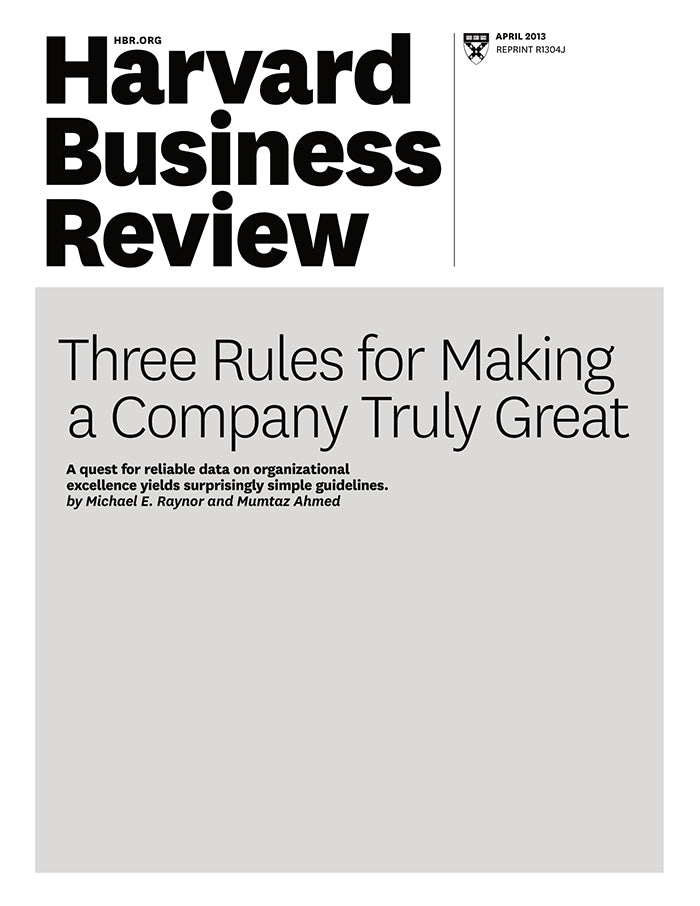Three Rules for Making a Company Truly Great
受取状況を読み込めませんでした
Much of the strategy and management advice that business leaders turn to is unreliable or impractical, say the authors, because those who would guide us underestimate the power of chance. Raynor and Ahmed undertook a statistical study of 25,000 companies--those that had traded on U.S. stock exchanges at any time from 1966 to 2010. They measured performance according to return on assets--a metric, they reasoned, that reliably reflects managerial efforts rather than simply changes in expectations, which are the primary driver of shareholder returns. Out of that 25,000 they identified 344 companies they deem exceptional: 174 Miracle Workers, whose ROA fell in the top 10% of all companies studied, and 170 Long Runners, whose ROA fell in the top 20% to 40%. For purposes of comparison, they also identified companies that were Average Joes. After repeatedly trying and failing to isolate measurable behaviors that were consistently relevant to success, the authors shifted their emphasis away from what these companies did to hypotheses about how they thought. They realized that the choices these companies had made were consistent with three seemingly elementary rules: (1) Better before cheaper--in other words, compete on differentiators other than price. (2) Revenue before cost--that is, prioritize increasing revenue over reducing costs. (3) There are no other rules--so change anything you must to follow Rules 1 and 2.
【書誌情報】
ページ数:11ページ
サイズ:A4
商品番号:HBSP-R1304J
発行日:2013/4/1
登録日:2013/4/16


